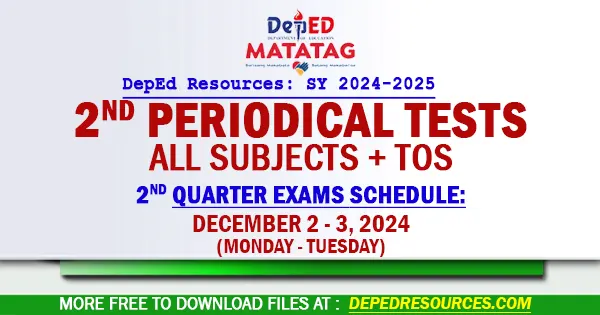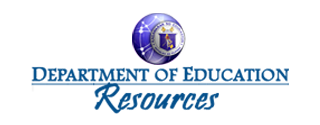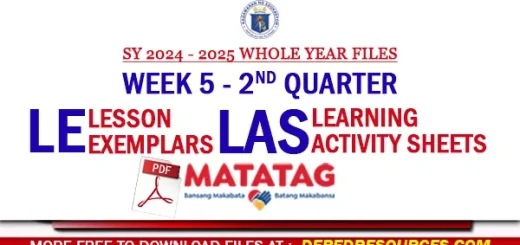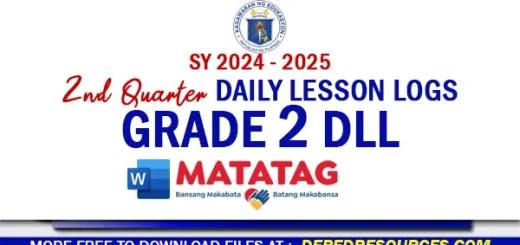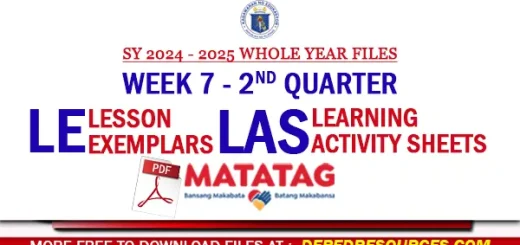Matatag 2nd Periodical Tests – All Subjects with TOS | SY 2024 – 2025
What are Periodical Tests?
The Department of Education (DepEd) uses periodical tests to evaluate students’ understanding of essential skills and knowledge throughout the school year. These exams, a core part of the education system reveal both student progress and teaching effectiveness. While primarily content-focused, these tests highlight the need for deeper, goal-oriented assessments that go beyond memorization. This approach encourages teachers to align evaluations directly with their teaching goals enriching the learning experience. See Matatag 2nd Periodical Tests.
Setting instructional goals before assessing students offers several benefits. First, it prompts teachers to think critically about their objectives, helping them refine the purpose of each lesson. This method also boosts motivation, as teachers feel more connected to the process when assessments relate closely to their valued goals. Furthermore, goal-driven assessments ensure that what teachers cover in lessons is directly linked to what they evaluate, creating a cohesive learning path.
Collaborative teaching teams benefit even more from a goal-based approach. Working toward shared goals builds a common language allowing teachers from different subjects to communicate effectively and align their teaching methods. This shared framework fosters consistent improvement and paves the way for interdepartmental collaboration particularly around complex skills like critical thinking.
2nd Quarter Examination Schedule |
GRADE 7 2nd Periodical Tests Schedule
Matatag 2nd Quarter Examination Schedule
DECEMBER 2 – 3, 2024
(Monday – Tuesday)
However, starting with instructional goals has challenges. At first, this approach may seem complex and time-consuming especially when adjusting broad objectives to fit specific courses. Teachers in content-heavy classes may find it difficult to apply these goals practically, as balancing content delivery with broader learning goals like critical reasoning can be tough to achieve and measure. Whether using a goal-based or question-based approach, teachers need to focus classroom assessment on clear, manageable questions that promote steady progress. By breaking down broad goals into practical, assessable components, teachers guide students through a rich, comprehensive learning journey that goes beyond facts and fosters meaningful understanding.
